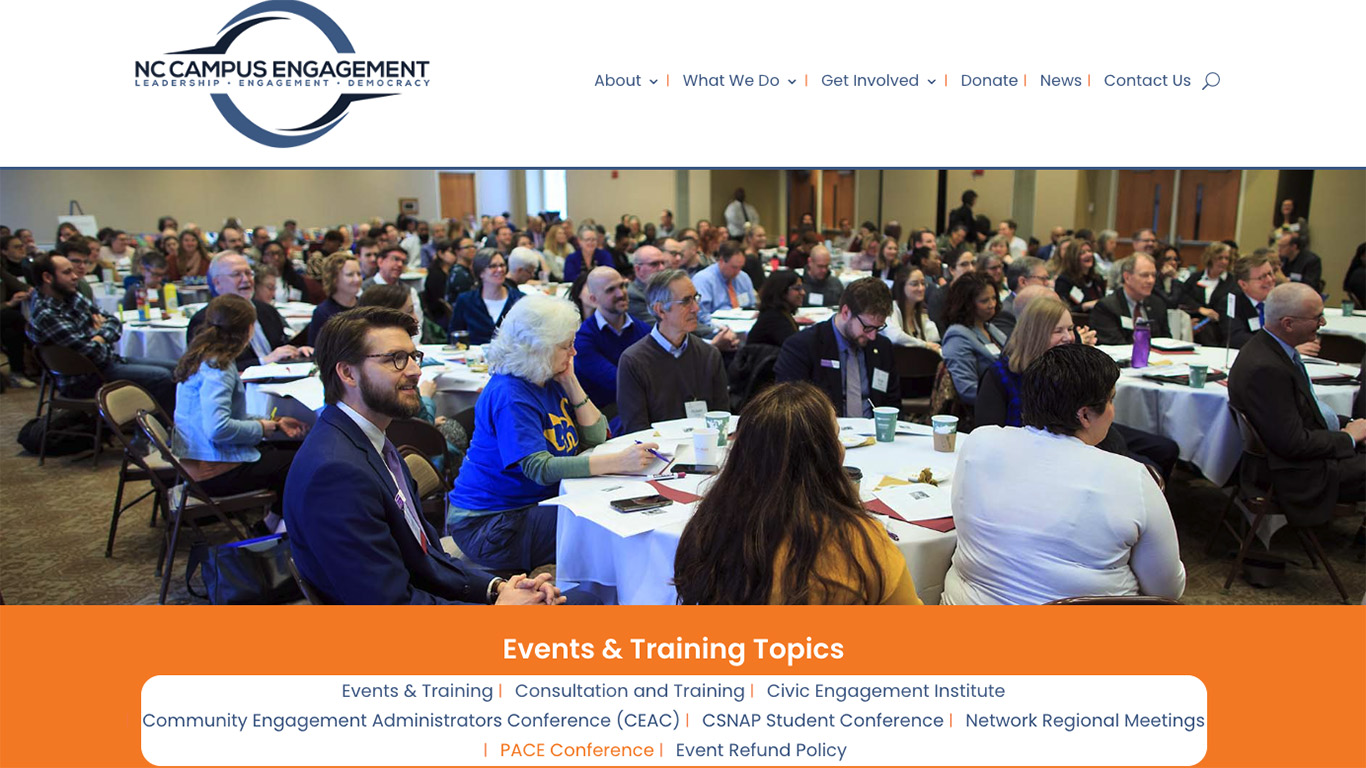
Fellows cohort co-presents at PACE Conference

Amir Blair, Hiva Kadivar, and Beatrice Downey—the 2022-25 Libraries Fellows cohort—presented with angela gay-audre and Andiaye Qaasim from the African American Cultural Center at the Pathways to Achieving Civic Engagement Conference (PACE) on Feb. 14 at Guilford College.
The PACE Conference seeks to grow and share the practice and scholarship of the higher education community and civic engagement. Launched in 1999, PACE is the longest-running conference in the nation focused on this topic. The conference is organized by North Carolina Campus Engagement (NCCE), a collaborative network of colleges and universities committed to educating students for civic and social responsibility, partnering with communities for positive change, and strengthening democracy.
The presenting group led a community conversation entitled “Building generative, reciprocal cross-campus partnerships that strengthens community” that took the 2023 Black Research Symposium as a starting point. The session description was as follows:
The inaugural Black Research Symposium, held at NC State University in March 2023, broadened the traditional definition of research and provided vital opportunities for building community. The symposium’s theme, “The Power of Community: Afro-Diasporic Worldbuilding and a Sustainable Futurity” featured Black diasporic learning, scholarship, and epistemologies via cutting-edge research, storytelling, creative works, discussion circles, community-based projects, and industry initiatives from the NC State campus and surrounding community.
Leaders from NC State’s African American Cultural Center organized working groups made up of contributing stakeholders to plan the Symposium. They established an inclusive and principle-based planning process wherein everyone had a voice. This community conversation will explore the grounding principles that were the foundation of the Symposium and reflect on the planning process as a model for building generative and reciprocal partnerships across campus. The facilitators will encourage discussion about the importance of relationships, coalition building, and sharing resources in order to strengthen our communities.
“Much of the conversation was about the current climate and political context around doing DEI work on college campuses, and fostering a sense of wellness and belonging,” Downey says. “We exchanged stories of challenges and frustration, resources and ways to advocate for our campus communities. angela suggested we create a community circle, as opposed to the classroom-style setup that was provided, which created the perfect setup for the free-flowing exchange that we had. The conversation was hard to stop when our time was up; we could have gone for an additional hour easily."


